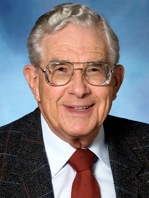 One of the themes at the Wheaton gathering on Evangelicals and the Early Church was how hard it is to get a grip on the early church, and it was said plenty of times that it takes long hours and hard work. The ordinary pastor sitting there had to be thinking, “That leaves me out.” Sure, to read all of the Pre- (or Ante-) Nicene and Nicene and Post-Nicene Fathers, at least in the Eerdmans edition, would consume the reading of many of us for the next decade.
One of the themes at the Wheaton gathering on Evangelicals and the Early Church was how hard it is to get a grip on the early church, and it was said plenty of times that it takes long hours and hard work. The ordinary pastor sitting there had to be thinking, “That leaves me out.” Sure, to read all of the Pre- (or Ante-) Nicene and Nicene and Post-Nicene Fathers, at least in the Eerdmans edition, would consume the reading of many of us for the next decade.
Is there a way to get into some of the critical issues, a way to get some perspective? I think I’ve found a way to get to the fundamental texts about some of the most important pastorally-significant issues, and I had never heard of these books. I wish I had these books years ago. Everett Ferguson has a two-volume collection of evidence about crucial topics called Early Christians Speak: two volumes,
Volume 2:Early Christians Speak – Vol. 2 , which is available.
, which is available.
Volume one has the texts and short discussion and bibliography on 19 topics, including faith, baptism, women, early worship services, Lord’s Supper, love feast, prayers, organization of the church, discipline, and military service.
Volume two has the same approach on different topics: doctrine of Scripture, canon, spiritual gifts, demons, angels, freedom of religion, asceticism, great women, divorce and remarriage, and eschatology… etc..
In short, these books, or at least volume two, needs to be on the shelves of pastors and anyone who wants to know what was going on in the early church.
Ferguson gave a keynote address on why we study the early church, and it was a gem. Tall and lanky and humble and gentle and industrious, Ferguson is known to all Bible people. His book on baptism is a magnum opus (Baptism in the Early Church: History, Theology, and Liturgy in the First Five Centuries
), but many of us know of him through his Backgrounds of Early Christianity
, a very important handbook on all things background for New Testament studies.
), but many of us know of him through his Backgrounds of Early Christianity
, a very important handbook on all things background for New Testament studies.

